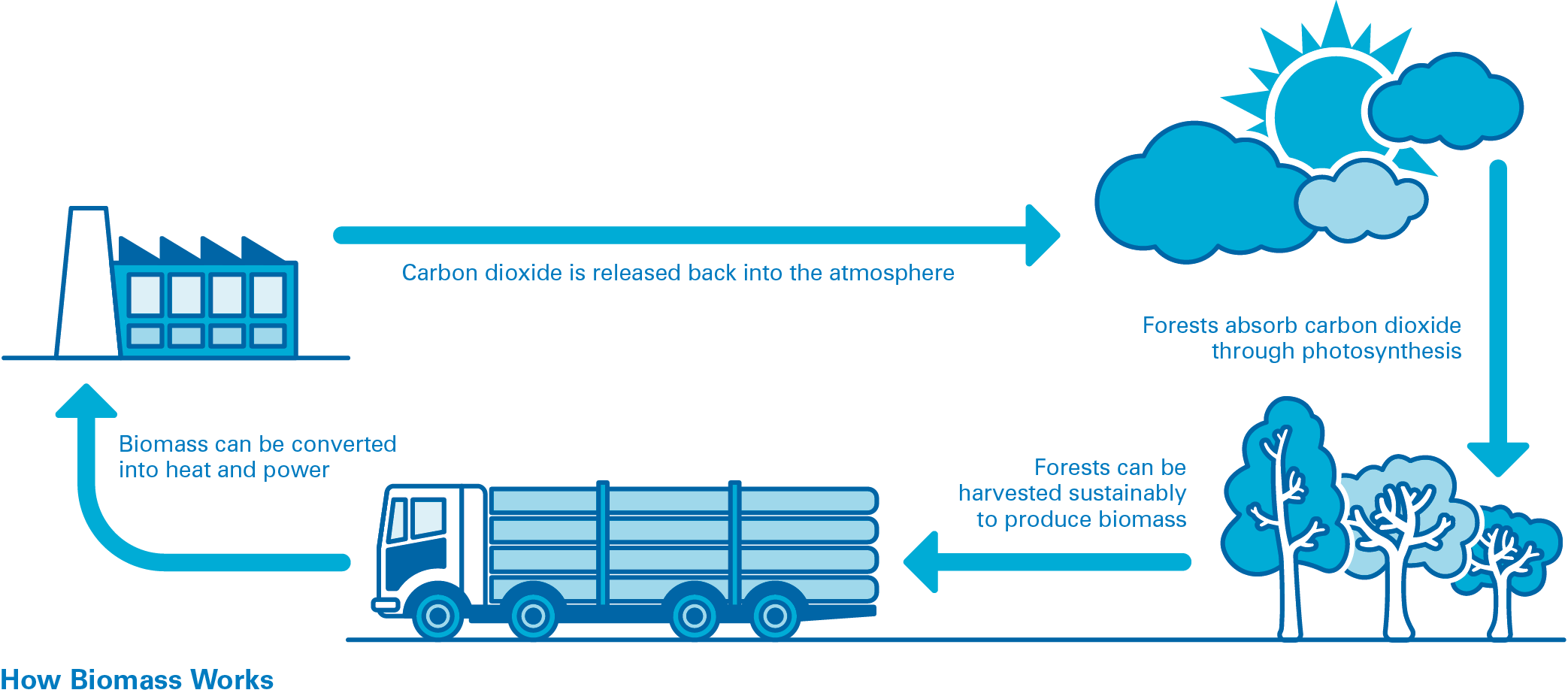The energy content of Biomass can vary greatly.
The carbon dioxide emitted when wood is burned is the same amount that was absorbed over the months and years that the plant was growing. The process is sustainable as long as new plants continue to grow in place of those used for fuel. There are some carbon emissions caused by the cultivation, manufacture and transportation of the fuel, but as long as the fuel is sourced locally, these are much lower than the emissions from fossil fuels.
The energy content of Biomass can vary greatly. The moisture content of processed biomass fuel will typically have the greatest impact on the energy density of the fuel. Wood chips typically have an energy content of 2-4kWh/kg whilst wood pellets and oven dried solid wood 5-5.8kWh/kg
The capital cost of a biomass heating system will ultimately depend on the type and size of system you choose, and the size and type of property to be heated. However, installation and commissioning costs tend to be fairly consistent with standalone room heaters (stoves) generally costing around £2,000 – £4,000 installed. The cost for boilers varies depending on the fuel choice. Nevertheless, for an average three-bedroom semi-detached house a 20kW pellet boiler would typically cost around £5,000 – £14,000 installed, including the costs of associated flue and commissioning.
Unlike other forms of renewable energy, biomass systems require fuel to be supplied in order to operate. Fuel costs generally depend on the distance from the source and supplier of the biomass material such as wood pellets or logs. In general, the running costs will be more favourable if areas where there are no mains natural gas supply. A properly installed biomass boiler or heater is very efficient at burning biomass fuel and releasing heat and only leaving between 0.5 to 2% of the fuel volume in ash. Commercially available biomass technology can be 70-80% efficient at creating and emanating usable heat.





